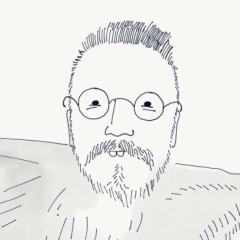#семья #воспитание #драманализ #радио #спектакль
ВОЗВРАЩЕНИЕ К СЕМЕЙНЫМ ЦЕННОСТЯМ... ПОКА НЕ ПОЗДНО
Виктор Штанько. Пока не поздно. (радиоспектакль, 1973): Алла Покровская, Анатолий Папанов, Олег Даль, Татьяна Васильева, Геннадий Сейфулин.
Это пьеса про семейные ценности. Про то, что семья - это необходимая и важная составляющая в воспитании и формировании Человека. Но вопрос в том, каково отношение к семье в обществе? Правильно ли общество оценивает значение семьи? И какие приоритеты устанавливает, как распределяет роли в семье? Если роли распределены неправильно, неточно расставлены акценты, то начнутся проблемы у детей. И с этим придётся столкнуться рано или поздно. Лучше сделать это вовремя, "пока не поздно".
Живёт большая семья. Дед всю жизнь проработал на заводе. По здоровью, по зрению и по возрасту он уже третий год на пенсии. Зять работает главным инженером на том же заводе. Личность известная, уважаемая. О нём пишут, говорят. Дочка - учитель в школе. Двое взрослых детей у них. Дочь за мужем за инженером того же завода. Живут отдельно. Второй ребёнок, Павел, только закончил школу. Пока не поступил в институт. Но мать устроила его на работу в заводскую лабораторию. Добилась его отсрочки от армии.
Всё вроде хорошо. Все устроены. Дом - полная чаша. Родители увлечены работой. Только дед чем-то недоволен.
"Почему у нас дома жизнь, как в купированном вагоне? Вроде все вместе куда-то едем. А на самом деле каждый по отдельности. В одиночку. Каждый со своим личным багажом и билетом."
Внешне всё благополучно. Но что-то идёт не так. Дочь собирается уходить от мужа. Сын не ходит на работу, а проводит будни в метро.
Дед всё видит и чувствует надвигающиеся проблемы. Но до сих пор активно не вмешивается в ситуацию. Только ворчит.
Но наступает момент, когда всё достигает своего апогея, кульминации. И от того, как поведут себя члены семьи, зависит развязка. И главными катализаторами ситуации становятся самый старший и самый молодой в семье. Как говорится, "верхи не хотят, а низы не могут жить по-старому".
Стечение обстоятельств собирает впервые за долгое время всех членов семьи за общим столом. И надо что-то делать, что-то решать. Пока не поздно.
Дед решается серьёзно вмешаться в эту круговерть. Надо, чтобы зять понял, что не всё благополучно в "датском королевстве". А внук научился, наконец, ответственно и самостоятельно строить свою жизнь. Да и внучку ещё можно спасти от разрушения семьи.
"Человек ты сейчас большой. В газетах пишут, по радио говорят. Да на работе себя не щадишь. А тут дома этого не получается. Словно в гостиницу в номер приходишь."
Извечная тема нашего времени: в чём суть воспитания? Что должны делать родители, чтобы их дети вступили в жизнь самостоятельными ответственными людьми? Оберегать от всего и устраивать их жизнь? Можно ли самоустраниться мужчине от этого процесса, а потом неожиданно оказаться лицом к лицу с тем, что твои дети несчастны?
"На заводе знаю тысячи людей: кто чем дышит, у кого что болит, всё знаю. А здесь дома перестал отвечать, отвечать душой, сердцем вот за этих родных мне людей. И дело здесь не во времени. Я сюда приходил, словно в номер гостиницы. Жильцы гостиницы собрались совершенно случайно за одним столом поздно вечером. Но они могли сегодня-завтра даже не встретиться. Каждый делает своё дело. Утром опять в командировку. И так всю жизнь. Но кто оплатит нам командировочные расходы? Никто не оплатит. Отвечать будем сами себе. И жильцы гостиницы уже начали расплачиваться. Мы все вместе вчетвером даже никуда, кажется, не ходили. И всегда на то существовали причины."
ВОЗВРАЩЕНИЕ К СЕМЕЙНЫМ ЦЕННОСТЯМ... ПОКА НЕ ПОЗДНО
Виктор Штанько. Пока не поздно. (радиоспектакль, 1973): Алла Покровская, Анатолий Папанов, Олег Даль, Татьяна Васильева, Геннадий Сейфулин.
Это пьеса про семейные ценности. Про то, что семья - это необходимая и важная составляющая в воспитании и формировании Человека. Но вопрос в том, каково отношение к семье в обществе? Правильно ли общество оценивает значение семьи? И какие приоритеты устанавливает, как распределяет роли в семье? Если роли распределены неправильно, неточно расставлены акценты, то начнутся проблемы у детей. И с этим придётся столкнуться рано или поздно. Лучше сделать это вовремя, "пока не поздно".
Живёт большая семья. Дед всю жизнь проработал на заводе. По здоровью, по зрению и по возрасту он уже третий год на пенсии. Зять работает главным инженером на том же заводе. Личность известная, уважаемая. О нём пишут, говорят. Дочка - учитель в школе. Двое взрослых детей у них. Дочь за мужем за инженером того же завода. Живут отдельно. Второй ребёнок, Павел, только закончил школу. Пока не поступил в институт. Но мать устроила его на работу в заводскую лабораторию. Добилась его отсрочки от армии.
Всё вроде хорошо. Все устроены. Дом - полная чаша. Родители увлечены работой. Только дед чем-то недоволен.
"Почему у нас дома жизнь, как в купированном вагоне? Вроде все вместе куда-то едем. А на самом деле каждый по отдельности. В одиночку. Каждый со своим личным багажом и билетом."
Внешне всё благополучно. Но что-то идёт не так. Дочь собирается уходить от мужа. Сын не ходит на работу, а проводит будни в метро.
Дед всё видит и чувствует надвигающиеся проблемы. Но до сих пор активно не вмешивается в ситуацию. Только ворчит.
Но наступает момент, когда всё достигает своего апогея, кульминации. И от того, как поведут себя члены семьи, зависит развязка. И главными катализаторами ситуации становятся самый старший и самый молодой в семье. Как говорится, "верхи не хотят, а низы не могут жить по-старому".
Стечение обстоятельств собирает впервые за долгое время всех членов семьи за общим столом. И надо что-то делать, что-то решать. Пока не поздно.
Дед решается серьёзно вмешаться в эту круговерть. Надо, чтобы зять понял, что не всё благополучно в "датском королевстве". А внук научился, наконец, ответственно и самостоятельно строить свою жизнь. Да и внучку ещё можно спасти от разрушения семьи.
"Человек ты сейчас большой. В газетах пишут, по радио говорят. Да на работе себя не щадишь. А тут дома этого не получается. Словно в гостиницу в номер приходишь."
Извечная тема нашего времени: в чём суть воспитания? Что должны делать родители, чтобы их дети вступили в жизнь самостоятельными ответственными людьми? Оберегать от всего и устраивать их жизнь? Можно ли самоустраниться мужчине от этого процесса, а потом неожиданно оказаться лицом к лицу с тем, что твои дети несчастны?
"На заводе знаю тысячи людей: кто чем дышит, у кого что болит, всё знаю. А здесь дома перестал отвечать, отвечать душой, сердцем вот за этих родных мне людей. И дело здесь не во времени. Я сюда приходил, словно в номер гостиницы. Жильцы гостиницы собрались совершенно случайно за одним столом поздно вечером. Но они могли сегодня-завтра даже не встретиться. Каждый делает своё дело. Утром опять в командировку. И так всю жизнь. Но кто оплатит нам командировочные расходы? Никто не оплатит. Отвечать будем сами себе. И жильцы гостиницы уже начали расплачиваться. Мы все вместе вчетвером даже никуда, кажется, не ходили. И всегда на то существовали причины."
# family # education # drama analysis # radio # play
RETURN TO FAMILY VALUES ... UNTIL LATE
Victor Shtanko. Until it's not too late. (radio play, 1973): Alla Pokrovskaya, Anatoly Papanov, Oleg Dal, Tatyana Vasilyeva, Gennady Seifulin.
This is a play about family values. About the fact that the family is a necessary and important component in the upbringing and formation of Man. But the question is, what is the attitude towards the family in society? Does society correctly assess the value of the family? And what priorities sets, how distributes roles in the family? If the roles are distributed incorrectly, inaccurately placed accents, then problems will begin in children. And this will have to face sooner or later. It is better to do it on time, “before it's too late”.
There is a big family. Grandfather worked all his life at the factory. On health, on sight and on age he is already the third year in retirement. In-law works as a chief engineer in the same factory. Person known, respected. They write about him, they say. Daughter - a teacher at school. Two adult children have them. Daughter of her husband for an engineer of the same plant. They live separately. The second child, Paul, just finished school. Not yet entered the institute. But his mother took him to work in the factory laboratory. Has achieved his deferment from the army.
Everything seems fine. Everything is arranged. The house is a full bowl. Parents are passionate about work. Only grandfather displeased with something.
"Why is life at home like in a stolen car? It seems everyone is going somewhere together. But in fact, everyone is separate. Alone. Each has his own luggage and ticket."
Outwardly, everything is fine. But something goes wrong. Daughter is about to leave her husband. The son does not go to work, and spends everyday life in the subway.
Grandfather sees and feels imminent problems. But still not actively intervene in the situation. Only grumbles.
But there comes a time when everything reaches its climax, the climax. And how the family members behave depends on the outcome. And the main catalysts of the situation are the oldest and the youngest in the family. As the saying goes, "the tops do not want, and the lower classes cannot live in the old way."
By coincidence, for the first time in a long time, all family members gather around the table. And you have to do something, decide something. Until it's not too late.
Grandfather decided to seriously intervene in this whirlwind. It is necessary that the son-in-law understand that all is not well in the "Danish kingdom." A grandson learned, finally, responsibly and independently build their lives. Yes, and the granddaughter can still be saved from the destruction of the family.
"You are a big man now. They write in newspapers, they talk on the radio. You don’t spare yourself at work. And then it doesn't work at home. It’s like you come to a hotel room."
The eternal theme of our time: what is the essence of education? What should parents do in order for their children to enter into life as independent responsible people? Protect from everything and arrange their lives? Is it possible for a man to withdraw from this process, and then suddenly find himself face to face with the fact that your children are unhappy?
"At the plant I know thousands of people: who breathes what, who hurts what, I know everything. And here I stopped responding at home, responding with my soul, with my heart for these kindred people. And it’s not about time. I came here as if in a room hotels. Residents of the hotel gathered quite accidentally at the same table late at night. But they could not even meet today or tomorrow. Everyone does his job. In the morning, again, on a business trip. And so it’s all my life. But who will pay us the travel expenses? we will be ourselves. And the tenants of the hotel have already begun to cry We all together the four of us didn’t even go anywhere. And there were always reasons for that. "
RETURN TO FAMILY VALUES ... UNTIL LATE
Victor Shtanko. Until it's not too late. (radio play, 1973): Alla Pokrovskaya, Anatoly Papanov, Oleg Dal, Tatyana Vasilyeva, Gennady Seifulin.
This is a play about family values. About the fact that the family is a necessary and important component in the upbringing and formation of Man. But the question is, what is the attitude towards the family in society? Does society correctly assess the value of the family? And what priorities sets, how distributes roles in the family? If the roles are distributed incorrectly, inaccurately placed accents, then problems will begin in children. And this will have to face sooner or later. It is better to do it on time, “before it's too late”.
There is a big family. Grandfather worked all his life at the factory. On health, on sight and on age he is already the third year in retirement. In-law works as a chief engineer in the same factory. Person known, respected. They write about him, they say. Daughter - a teacher at school. Two adult children have them. Daughter of her husband for an engineer of the same plant. They live separately. The second child, Paul, just finished school. Not yet entered the institute. But his mother took him to work in the factory laboratory. Has achieved his deferment from the army.
Everything seems fine. Everything is arranged. The house is a full bowl. Parents are passionate about work. Only grandfather displeased with something.
"Why is life at home like in a stolen car? It seems everyone is going somewhere together. But in fact, everyone is separate. Alone. Each has his own luggage and ticket."
Outwardly, everything is fine. But something goes wrong. Daughter is about to leave her husband. The son does not go to work, and spends everyday life in the subway.
Grandfather sees and feels imminent problems. But still not actively intervene in the situation. Only grumbles.
But there comes a time when everything reaches its climax, the climax. And how the family members behave depends on the outcome. And the main catalysts of the situation are the oldest and the youngest in the family. As the saying goes, "the tops do not want, and the lower classes cannot live in the old way."
By coincidence, for the first time in a long time, all family members gather around the table. And you have to do something, decide something. Until it's not too late.
Grandfather decided to seriously intervene in this whirlwind. It is necessary that the son-in-law understand that all is not well in the "Danish kingdom." A grandson learned, finally, responsibly and independently build their lives. Yes, and the granddaughter can still be saved from the destruction of the family.
"You are a big man now. They write in newspapers, they talk on the radio. You don’t spare yourself at work. And then it doesn't work at home. It’s like you come to a hotel room."
The eternal theme of our time: what is the essence of education? What should parents do in order for their children to enter into life as independent responsible people? Protect from everything and arrange their lives? Is it possible for a man to withdraw from this process, and then suddenly find himself face to face with the fact that your children are unhappy?
"At the plant I know thousands of people: who breathes what, who hurts what, I know everything. And here I stopped responding at home, responding with my soul, with my heart for these kindred people. And it’s not about time. I came here as if in a room hotels. Residents of the hotel gathered quite accidentally at the same table late at night. But they could not even meet today or tomorrow. Everyone does his job. In the morning, again, on a business trip. And so it’s all my life. But who will pay us the travel expenses? we will be ourselves. And the tenants of the hotel have already begun to cry We all together the four of us didn’t even go anywhere. And there were always reasons for that. "

У записи 3 лайков,
1 репостов.
1 репостов.
Эту запись оставил(а) на своей стене Максим Петров
























